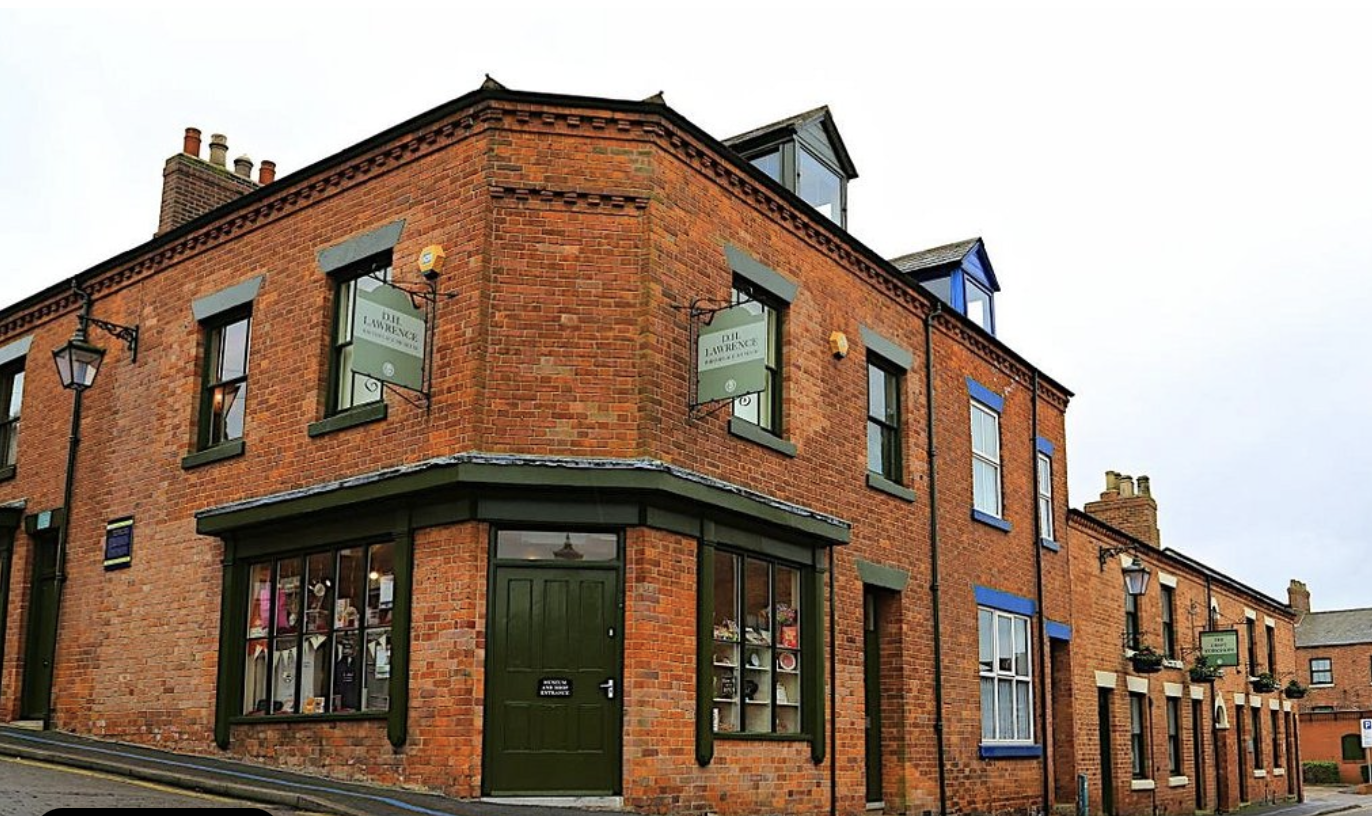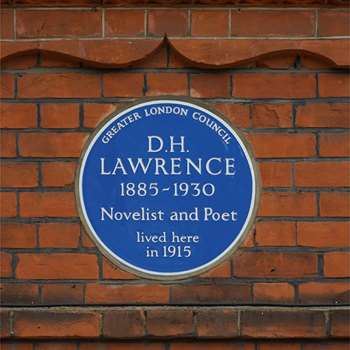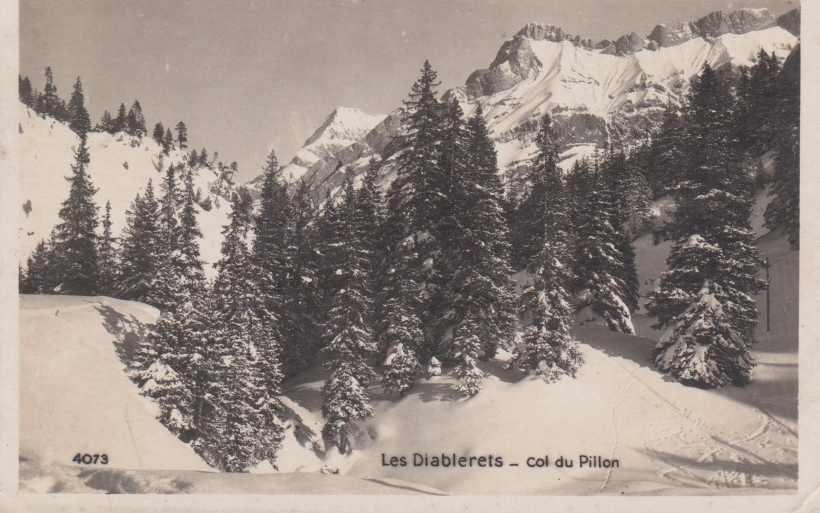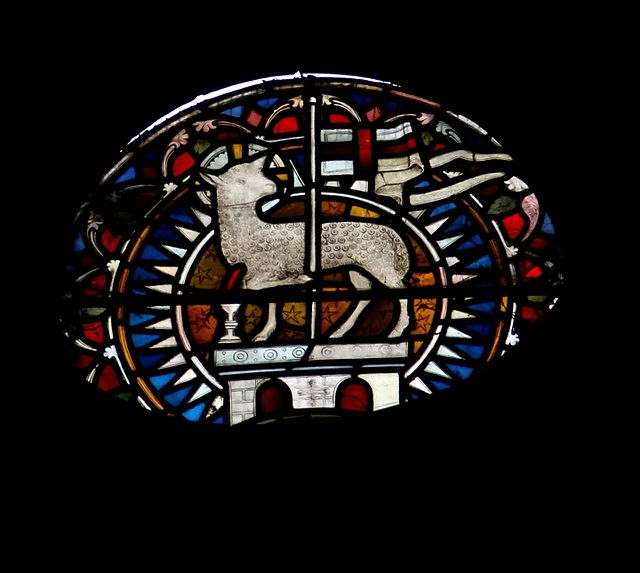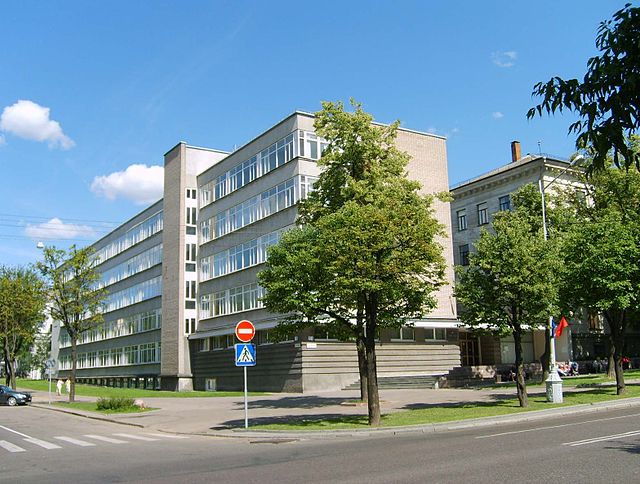Report of the Sixth Meeting of the London D. H. Lawrence Group
Dudley Nichols
Lawrencian Locations
Thursday 27th February 2020
New College of the Humanities, 19 Bedford Square, London, WC1B 3HH
6.30-8.30 pm
ATTENDERS
Liza Belozerova
Catherine Brown
Jane Costin
Alex Korda
Pat Korda
Dudley Nichols
Jane Nichols
Anthony Pacitto
Sue Reid
Hugh Stevens
Nahla Torbay
Colin Yeates
Alexander Vasilkov
THE PRESENTATION
Dudley’s presentation took around ninety minutes, and was followed by questions. It centred on a Powerpoint presentation of over a hundred photographs taken by himself and his wife Jane of locations known to Lawrence between 1905 and his death, as visited by the Nichols over the past fifteen to twenty years. His accompanying commentary was based on the more than five and a half thousand extant Lawrence letters, Twilight in Italy, autobiographies of various people who met Lawrence, and the papers of his Aunt Louie Burrows (1888-1962), who was engaged to Lawrence between November 1910 and February 1912. They had met at the pupil-teacher centre at Ilkeston, after which she became the headmistress of several Leicestershire primary schools. The presentation both opened and closed with discussion of her relationship to Lawrence; otherwise, it moved chronologically through Lawrence’s adult life. It underscored Lawrence’s restless energy for travel, finding new accommodation, and moving on again – despite all the greater arduousness of travel (especially when on a shoestring) of his day. It also struck me in what modest dwellings in what extraordinary locations with what extraordinary people Lawrence spent his life.
Early photos included ones of St. Catherine’s Church, Cossall:
St. Catherine’s Church, Cossall
the Cossethay of The Rainbow – and the neighbouring Church Cottage where Will and Anna Brangwen lived:
Church Cottage, Cossall
Dudley revealed the extent to which his own Grandfather, Alfred Burrows, was the model for Will Brangwen. He had lived in Church Cottage, and loved and tended the Church where he was choir master. These altar carvings were done by him:
Carvings at St. Catherine’s Church, Cossall
He and his wife also donated a window to this church:
Window in St. Catherine’s Church, Cossall, donated by Alfred and Louisa Ann Burrows, 1947
He was a lace designer, and teacher of arts and crafts in Leicestershire schools. Louie, born in 1888, was the oldest of his eight children; Dudley’s mother was born in 1903. Louie recalls that in 1906 or 1907 Alan Chambers and ‘Bert’ (as she always called him) ‘rode over one evening to borrow the carving tools’ from her father.
She also recalls a disagreement between her father and Bert about cathedrals and evensong. Against Bert, her father defended ‘all Anglican dogma and practice’. This recalls the disputes between Will and Anna Brangwen in The Rainbow. Eventually in 1908 the family moved to a new and larger house in Quorndon, a village to the South, just as the Brangwens also size-up between The Rainbow and Women in Love.
We saw The Cearne home of Edward and Constance Garnett, which stands close to where the Nichols now live. Lawrence stayed here for the first time in 1911 (during which he caught the pneumonia from which he nearly died) and again in 1913 (when he brought his new German lover Frieda). Our planned meeting of June 25th 2020 was to be a visit there, but due to coronavirus this is now postponed until summer 2021.
In January 1912 he went to recuperate from his pneumonia in Bournemouth, and wrote to his fiancée Louie Burrows (on 10th January) about ‘a wonderfully fine church’ – Christchurch Priory. Ten days later he urged again: ‘You must go there some time’.
Early in February he returned to stay with the Garnetts, and broke off his engagement on 4th February 1912 by letter. Dudley speculates on two possible factors behind this change of heart – the effects of his profound illness, and the example of the unconventional society and open marriage which he encountered at the Garnetts, which conflicted with Louie’s more traditional principles. He signed his letter ‘D.H. Lawrence’- his pen-name – though John Worthen, when once asked by Dudley at a conference why Lawrence sometimes used this and sometimes used ‘DHL’ as a letter sign-off, denied that there was necessarily any significance his choices, since the length of his sign-offs could depend simply on how much remaining paper he had available.
The Nichols have made their own Alpine walks in the footsteps of those made by Lawrence and Frieda in the summer of 1912. Dudley pointed out the subsequent changes to what would have seemed unchangeable to them then. The Pfitzer Joch which now marks the boundary between Austria and Italy was then well within the Austrian Empire. The Zillertal (as Dudley showed us on a contemporary postcard) contained a glacier then, but a lake now.
A propos of the Lawrences’ move to Cornwall in 1915 , Dudley reminded us that Lawrence had written to Truro, Cornwall, for an application form for a teaching job whilst he was a teacher in Croydon. He was hoping that Louie would join him there if he got the job. This indicates that he may have had a hankering for Cornwall well before he actually moved there.
Dudley’s photo of the buildings which Lawrence rented at Higher Tregerthen clearly shows the ‘tower’ (the square raised part of the building closest to the camera in the photograph below). This was in a building which Lawrence initially rented for the use of friends – their own cottage being just to the right of it below – but he ended up using the tower to write in. It was there that he wrote much of Women in Love.
The cottages which Lawrence rented in Higher Tregerthen
After the War the Lawrences resumed their travels. They had a period in Taormina, Sicily, made a visit to Sardinia which Adam Lang was due to tell us about in the meeting of 24th April 2020, which has now been postponed due to coronavirus’ and Lawrence spent around a month in Florence (where he had a brief relationship with Rosalind Baynes) whilst Frieda was visiting her mother at Ludwig Wilhelm Stift in Baden-Baden:
Ludwig Wilhelm Stift, Baden-Baden
The Lawrences then went further afield – to Ceylon and then Australia:
Thirroul, Australia, looking South
Lawrence wrote to his Schwiegermutter Baroness Anna von Richthofen on the 9th June 1922 from Thirroul as follows (translated from the German):
‘We bathe at midday, when the sun is very warm, and the beach quite, quite lonely: only the waves. – […] And sky and earth so new, as if nobody had yet taken one breath from it, set one foot on it. The great spiritual freight that weighs so heavily in Europe doesn’t even exist here. One feels somewhat like a child that has no real cares.’ [The Lawrence Letters, Cambridge University Press, volume IV, p. 256]
Those of us who will be going to Taos for the 14th International D. H. Lawrence Conference next July (the 2020 conference having been postponed by a year due to coronavirus) were given a foretaste of the place from Dudley’s 1990 photo of the Kiowa Ranch, seventeen miles outside Taos.
Dudley helpfully classified Lawrence’s times in/near Taos as three, between autumn 1922 and autumn 1925, during which who period he was there only about half the time.
In his first stay, of September 1922-March 1923, he met Mabel Dodge Luhan, and helped her to write political tracts in defence of Indians. He and Frieda survived a winter at 8,500 feet (2,590 m) at the Del Monte Ranch.
In Spring 1923 they then went to Chapala, Mexico, for the summer. From there they went to New York, and Frieda returned to Europe whilst Lawrence travelled down the West Coast of America to Mexico. He then returned to London and had the ‘last supper’ at the Café Royal.
During his second stay, from March to October 1924, Lawrence had a very productive summer at the ranch at Kiowa (given by Mabel Dodge Luhan to Frieda not Lawrence, as he did not want to own real estate). There he wrote St Mawr, The Princess, and The Woman Who Rode Away. In the winter of 1924 he returned to Oaxaca, Mexico.
Kiowa Ranch
His third stay in Taos, from spring 1925, allowed him to recover his health after a serious illness. He spent the summer recovering, and that autumn he and Frieda returned to Europe for good.
Villa Mirenda, near Florence
Of the Villa Mirenda Lawrence wrote to Dorothy Brett on 13th May 1926:
‘We’ve taken the top half of this old villa out in the country about seven miles from Florence – crowning a little hilltop in the Tuscan style. Since the rent is only 3,000 Liras for a year – which is twenty-five pounds – I took the place for a year. Even if we go away, we can always keep it as a pied à terre and let friends live in it. It is nice – looking far out over the Arno valley – and very nice country, real country, pine woods, around.’
[The Lawrence Letters, Cambridge University Press, volume V, p. 453]
It was there that he took up painting. Dudley told us that Louie thought that the woman depicted in ‘The Holy Family’ was like her, because he had captured her head shape and facial features:
‘The Holy Family’
Chapel at Taos
Dudley made a coda regarding Christchurch Priory, Bournemouth, about which Lawrence in 1912 had twice written to Louie, encouraging her to visit it. In 1941 Louie, aged 52, was married for the first time to a widower named Frederick Seward-Heath (1885-1968). They were both spiritualists and had met at a séance; he was trying to contact his dead wife; Dudley speculated that she might have been trying to get in contact with Lawrence, who by then had been dead for ten years. She retired from teaching in 1941. In 1962 she decided to go to Bournemouth in order to recuperate from a heart problem. It was on that visit that she finally visited Christchurch Priory. Having seen it she returned to her hotel, and, whilst getting ready for dinner, collapsed and died.
Christchurch Priory, Bournemouth
Dudley finished by reading out the last letter that Lawrence wrote to Louie, in 1912: ‘you always treated me really well…the wrong was all on my side.’
He handed round Jon Turner’s book on Louie Burrows, which is available here from Reprint UK: Louie Burrows: Her Remarkable Midlands Life.
Just one week after this meeting, on 4th March, it was announced that a postcard sent by Lawrence to Louie from Blackpool in August 1910 – which had been found under a bed – was to be auctioned by Hansons Auctioneers. The auction was set for 2nd April, but the auction house closed due to coronavirus on 23rd March, and the auction itself is postponed for the foreseeable future.
Thanks to Dudley Nichols both for his talk, and for allowing me to reproduce his photographs here.
By Catherine Brown
